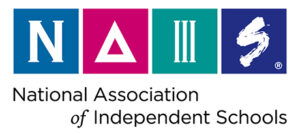by Farren Wyner, 4th Grade Teacher
When I was in school, my pre-adolescent mind equated these words with Shakespeare: Inaccessible, unrelatable, and nauseatingly dull. As students, we listened to the teacher’s overview of a particular play, mindlessly read the assigned text, maybe performed a few scenes, and then responded to comprehension questions. My worksheet questions reflected minimal comprehension, and after that worksheet was turned in, Shakespeare and his seriously-uncool, ruffled neck collar were forgotten. All plays jumbled into one and Shakespeare had zero impact on my life or worldview. Maybe your relationship with Shakespeare in school years ago was similar. Granted, educators then didn’t have as many of the teaching resources available today.
Today, teachers can accompany their students as actors on stage at The Globe Theater in London on a virtual tour and read aloud from beautifully-illustrated picture books of adapted plays. Online, we can walk in Shakespeare’s footsteps through his childhood home in Stratford-upon-Avon and watch powerful acting from the Royal Shakespeare Company. With graphic organizers and plays now modified and published for different reading levels, young children comprehend Shakespeare’s work and may recreate scenes with puppets, laugh over Shakespeare Mad Libs, or make text-to-self comparisons that connect them meaningfully to the characters. Here in Boulder County, elementary students from several schools, including Friends School, work with the Colorado Shakespeare Festival at the University of Colorado, participate in voice and acting coaching from professional teaching artists, and ultimately perform a play together on stage!

This program is a Spring tradition for 4th graders at Friends School. My 4th graders and I have been immersed in Shakespeare’s work and are genuinely enjoying ourselves. And while we’re unable to perform on stage this year for our friends and families due to COVID-19, we’re completely hooked! 4th grade students have delved into the flowery love and tragedy of “Romeo and Juliet,” debated the mortifying, heinous crimes of Lord and Lady Macbeth in “Macbeth,” and explored love versus infatuation through “Midsummer Night’s Dream.” We’ve re-written scenes as comics and explored iambic pentameter, simulating the rhythm and energy of the sounds by galloping around and feeling our heartbeats. We’ve laughed and traded Shakespearean insults and compliments (“Thou art a sugared, fair-faced, wafer-cake!”) and rewritten scenes as text messages:

I now understand how transformative and impactful Shakespeare’s work is for our lives, and sharing his gifts with my students has been one of the highlights of this school year. Indeed, these 4th graders have a better idea of where Scotland is, they can now include similes and metaphors into their creative writing pieces, and they’ve learned about power-hungry kings. Those skills are important, no doubt, but Shakespeare shows us so much more. He shows us language that blinds us with its brilliance (“Double, double toil and trouble; Fire burn, and cauldron bubble!”), that poor choices and guilt can haunt us, how love can bridge even centuries-old hatred, and that we can be foolish like a human with a donkey head. In short, Shakespeare teaches us about ourselves. Inaccessible, unrelatable, and nauseatingly dull? Not anymore!






